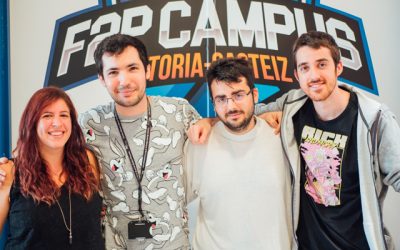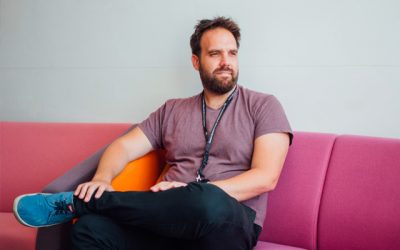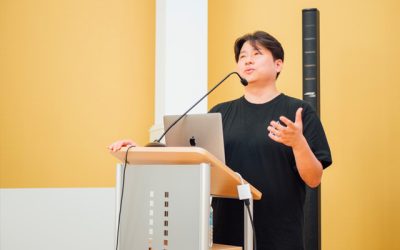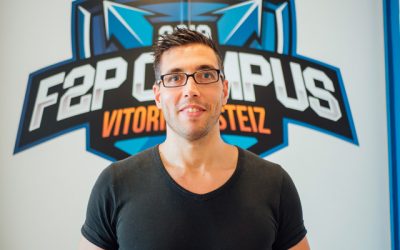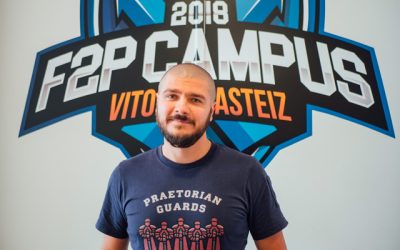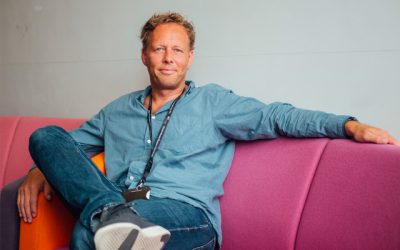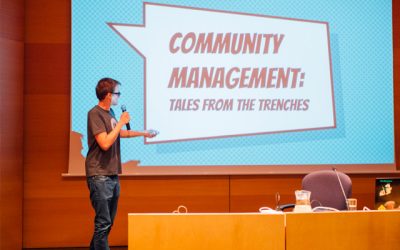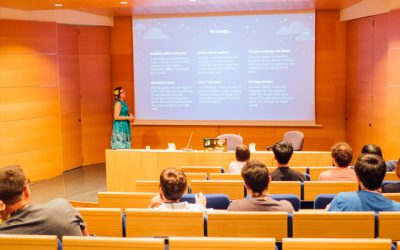Latest News
F2P CAMPUS VITORIA-GASTEIZ
Meet the team: Hypeful, the creators behind BigBox
Hailing from the south of Spain, Hypeful have travelled from the beautiful city of Malaga to Vitoria-Gasteiz to take part in the F2P Campus and take BigBox, their first game, to the next level.
Gina Tost, videogame journalist: “If you want to engage people you have to find what makes you different”
How does a design student end up as a journalist specializing in videogames? Well, according to Gina Tost, by pure chance. Since then more than 10 years have passed, during which she has contributed to dozens of media outlets, from generalist ones such as Televisión Española (TVE) to industry-related press such as IGN. Today she works for IGG, one of the leading developers and publishers of free-to-play for mobile, where she is in charge of communication.
Álvaro Rico, design director at Digital Legends: “A good live ops strategy can save a game that starts out on the wrong foot”
His broad experience has made Álvaro Rico one of the leading national authorities on the implementation of live ops strategies, which is why we couldn’t miss the opportunity to ask him a few questions during his stay as a mentor at the F2P Campus in Vitoria-Gasteiz.
An interview with Joony Koo, Free-To-Play monetization expert
We didn’t want to miss the chance to interview an expert on monetization like Joony Koo when he visited Vitoria-Gasteiz to mentor the F2P Campus teams. Such an interesting opportunity to learn about how blockchain could change free-to-play monetization.
Rafa Bernabé, monetization expert: “If we wanted to eliminate loot boxes for good, we’d have to ban chance”
At twenty-something years old, Rafa Bernabé had a good job in a big multinational company. However, what may have been a dream for many was for him merely something monotonous and repetitive that had nothing to do with what he’d dreamt of since he was a child. “I’ve always been an enterprising and creative person. I got to a point where I said either I spend my whole life here or I throw myself into fulfilling my dream, and I opted for the second”, he tells us.
Having completed a Master’s in videogame design and creation in Barcelona, he began working for Pyro. After several years he made the jump to Digital Legends, just when the first iPhone came out, although it didn’t take him long to convince a colleague to leave and found their own company, Pocket Puppet.
Eugene Yailenko, from ZeptoLab: “We try to soft launch as soon as we have a minimal viable product”
With more than 11 years of experience and success behind him in the videogame industry, we couldn’t miss the opportunity to ask him a few questions during his visit as a mentor at the F2P Campus in Vitoria-Gasteiz.
Kim Krogh, studio director at King: “Casual players want games to fill gaps in their day, but they wouldn’t pay for that”
Just like many of the mentors and participants in the F2P Campus, the story of how Krogh made his first steps is very curious: “Back in the 90s there was no game design or game education you could take, so I was studying film science…and while I was still studying I started making board games”. Since then, not only has he made the leap to the digital world, he’s also created games for all kinds of audiences, from families and kids to hardcore gamers.
Sangpil Moon, from Cogoo: “Game developers need to find a way to compete against YouTube”
At the F2P Campus in Vitoria-Gasteiz we feel very lucky to have an expert like Moon as a mentor that we didn’t want to miss the opportunity to talk to him about the present and future of the industry.
5 tips to create a community around your game by a former CM at Epic Games
Creating a community from scratch is far from straightforward. That’s why when an expert on the subject, like Alex Paschall, professor at ENTI and former Community Manager at Epic Games, shares their knowledge and experience, all you can do is sit pen in hand and write down all the advice they give you.
Kait Paschall explains how to make more accessible Free-To-Play mobile games
There are few things in life as complex as making a videogame, free-to-play or otherwise. From pre-production to launch there are hundreds of steps and thousands of decisions to make. So, why complicate things more and make the game accessible?
